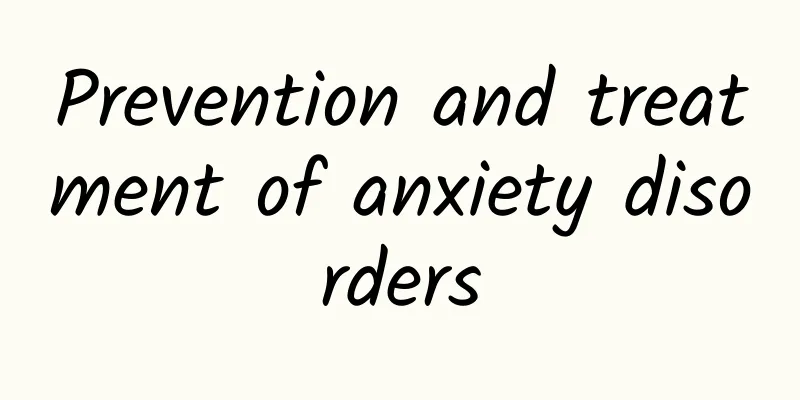What is hysteria?

|
People's minds need to relax, and if they are often in a tense state, a series of things will happen that are unimaginable with normal thinking. Hysteria is a symptom of mental illness. The causes of the disease are complicated and it is difficult to treat. Only by keeping the patient in a relaxed state and in a good mood can we prevent the occurrence of this disease. The symptoms of this disease are very complex and depend on the individual's condition. So what does hysteria mean? 1. Introduction to the disease Hysteria (dissociative conversion disorder) is a mental disorder caused by psychiatric factors, such as life events, inner conflicts, suggestion or self-suggestion, acting on susceptible individuals. The main manifestations of hysteria are dissociative symptoms and conversion symptoms. Dissociation refers to the complete or partial inconsistency between past experiences and current circumstances and self-identity. Conversion refers to an emotional response caused by mental stimulation, followed by the appearance of physical symptoms. Once the physical symptoms appear, the emotional response fades or disappears. The physical symptoms at this time are called conversion symptoms. The diagnosis of conversion symptoms must exclude organic diseases. 2. Causes 1. Biological factors (1) Genetics: The earliest genetic study of hysteria was completed by Kraulis in 1931. He investigated all relatives of patients diagnosed as hysterical by Kraepelin between 1906 and 1923 and found that 9.4% of the patients' parents had been hospitalized for hysteria; 6.25% of the brothers and sisters had been hospitalized for hysteria. One-half and one-third of the parents and siblings of hysterical patients respectively have one personality disorder or another. (2) Quality and personality type: It is generally believed that people with hysterical personality are prone to hysteria. The so-called hysterical personality is characterized by rich emotions, histrionics, egocentrism, fantasy, and high suggestibility. There are also descriptions of characteristics such as immaturity, threatening, and sexually provocative in foreign countries. (3) Physical factors: Clinically, it is found that organic damage to the nervous system has a tendency to induce hysteria. Multiple sclerosis, focal temporal lobe lesions, sporadic encephalitis, brain trauma, etc. can all lead to hysterical attacks. 2. Psychological factors: Modern medicine tends to believe that hysteria is a psychogenic disease. 3. Social and cultural factors have a significant impact on hysteria, which is mainly reflected in the onset and clinical symptoms of hysteria. Some people believe that they also affect its incidence. Pathogenesis The pathogenesis of hysteria is not yet fully understood, and the more influential views can be roughly summarized into two types. The first view is that hysteria is a primitive stress phenomenon. The so-called primitive reaction refers to the various instinctive reactions that humans show in crisis situations. Including: ① Excitatory reactions such as psychomotor excitement states such as running, screaming, emotional outbursts, etc.; ② Inhibitory reactions such as drowsiness, stupor, paralysis, deafness, dumbness, blindness, etc.; ③ Degenerative reactions such as childish behavior, childhood dementia, etc. The second view is that hysteria is a purposeful reaction. Clinical practice has found that hysteria often originates in difficult situations or times of crisis, and the onset of hysteria can often lead to escaping from such an environment or being exempted from certain obligations. |
<<: Is hysteria a mental illness?
>>: Are hysterical patients self-conscious?
Recommend
What are some tips for beauty with traditional Chinese medicine?
Since there are many fakes in the current market,...
Effects of Red Ginseng Qi and Blood Decoction
Red ginseng is a relatively common type of ginsen...
What does spasm mean?
What does spasm mean? Many of our friends don’t k...
Lung sarcoma, the two most common types
Sarcoma can occur in any part of our body, and th...
How many years can a patient with cerebral infarction live after nasogastric feeding?
Cerebral infarction is a disease that occurs in t...
What happens if you overexert yourself during sex?
In daily sexual life, we must master some skills ...
Is Chinese medicine a one-dose-a-day thing?
Regarding Chinese herbal medicines, many customer...
What to do if there is abscess in the episiotomy wound
Wound infection is mainly caused by viruses invad...
What Chinese medicine can cure dizziness?
Dizziness is a relatively common symptom. There a...
What to do if the wound is oozing water but not forming scabs
The wound oozes water but does not form a scab, m...
Diagnosis of COPD
Once the disease occurs, COPD will seriously affe...
What should I do if I get acne on my nose due to inflammation?
People tend to get irritated, especially when fac...
Chronic arterial occlusive disease
Arterial occlusion is a disease that can occur in...
Empty! Three health secrets for 30-year-old women
The topic of health preservation is of concern to...
What happens if a fracture is dislocated prematurely?
What happens if a fracture is dislocated prematur...









